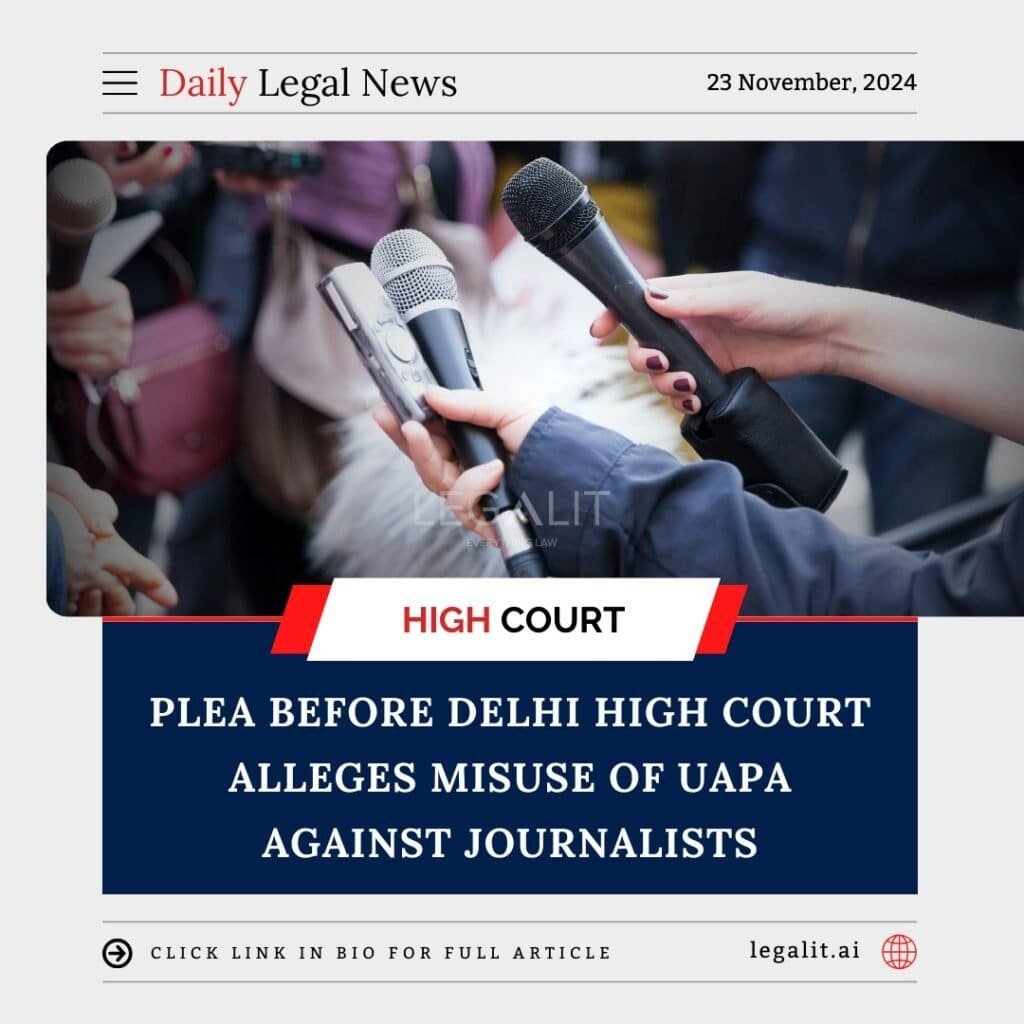
A plea has been filed in the Delhi High Court alleging the misuse of the Unlawful Activities (Prevention) Act (UAPA) against journalists, claiming it stifles free speech and undermines press freedom. The petition seeks judicial intervention to address the purported misuse of the anti-terror law.
Background:
The petition points to instances where journalists have been charged under UAPA for reporting on sensitive or controversial issues. It highlights cases where such charges were allegedly filed without sufficient evidence, leading to prolonged detention and harassment of journalists. The plea argues that invoking UAPA in these circumstances is a deliberate attempt to curb dissent and discourage investigative reporting.
Court’s Rationale:
The plea contends that UAPA, meant to combat terrorism, is being applied in cases where there is no prima facie evidence of terrorist activity. It argues that this misuse not only violates the fundamental rights of journalists under Article 19(1)(a) (freedom of speech and expression) but also undermines the constitutional mandate to ensure a free and independent press.
Existing Measures:
The judiciary has, in the past, called for stricter safeguards to prevent misuse of stringent laws like UAPA. However, critics argue that these safeguards are insufficient, with journalists and activists frequently targeted under its provisions. The plea urges the court to direct the authorities to ensure the law is applied judiciously and only in genuine cases.
Conclusion:
The Delhi High Court’s decision on the plea could have significant implications for press freedom and the application of anti-terror laws in India. It underscores the need for a nuanced approach to balance national security concerns with the protection of fundamental rights.